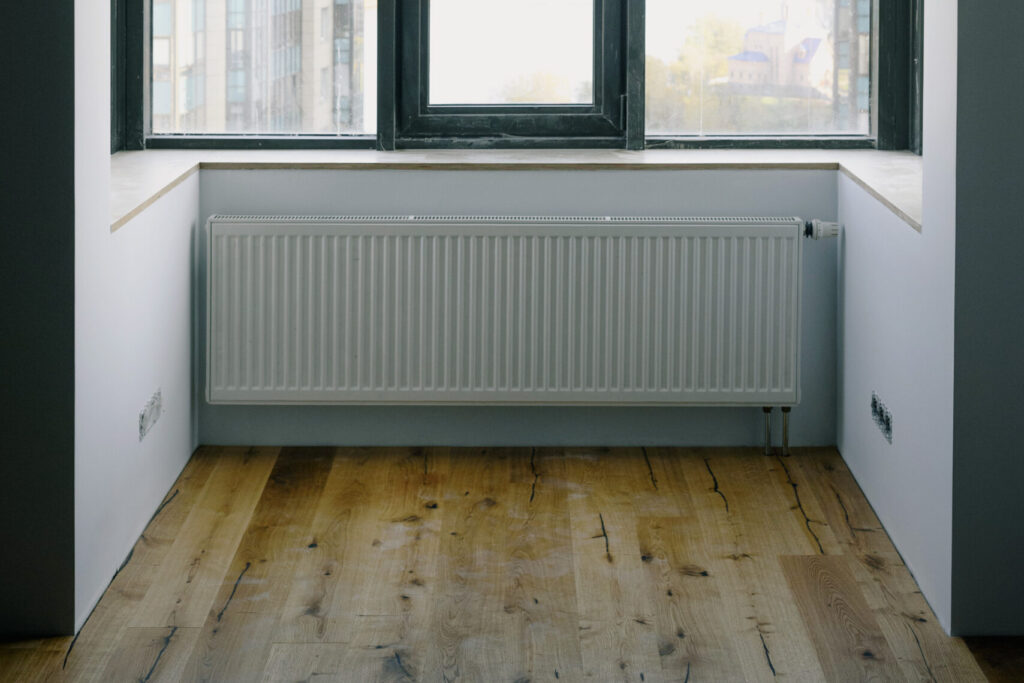
If you’ve ever had a problem with your central heating system, you’ve probably heard the term “bleeding a radiator.” But what does it mean, and why is it important?
In this blog post, we’ll explain what bleeding a radiator is, why it’s important, and how to do it. We’ll also discuss which radiator you should bleed first.
What is Bleeding a Radiator?
Bleeding a radiator is the process of removing air from the radiator. Air can get trapped in radiators for a number of reasons, including:
- Expansion and contraction of the water in the radiator as it heats up and cools down
- Corrosion of the radiator pipes
- Debris in the water
When air is trapped in a radiator, it prevents the water from flowing freely through the radiator. This can cause the radiator to heat up unevenly, or not heat up at all.
Why is Bleeding a Radiator Important?
Bleeding a radiator is important because it can help to improve the efficiency of your central heating system. When the radiators are working properly, they can heat your home more evenly and efficiently. This can save you money on your heating bills.
How to Bleed a Radiator
Bleeding a radiator is a relatively simple process. You will need the following tools:
- A radiator key
- A towel or rag
To bleed a radiator, follow these steps:
- Turn off your central heating system.
- Locate the bleed valve on the radiator. This is usually a small, square valve located at the top of the radiator.
- Place a towel or rag underneath the bleed valve to catch any water that may leak out.
- Use the radiator key to turn the bleed valve anti-clockwise. You will hear a hissing sound as the air is released from the radiator.
- Continue turning the bleed valve until only water comes out.
- Tighten the bleed valve with the radiator key.
- Turn your central heating system back on.
Which Radiator to Bleed First?
The best radiator to bleed first is the one that is furthest away from your boiler. This is because the air will have had more time to collect in this radiator, as it is the furthest away from the source of the water.
If you have a bungalow or a one-story home, you can start by bleeding the radiator that is furthest from the boiler. If you have a two-story home, you can start by bleeding the downstairs radiators that are furthest from the boiler, and then work your way upstairs.
Conclusion
Bleeding your radiators is a simple and effective way to improve the efficiency of your central heating system. By following the steps in this blog post, you can bleed your radiators like a pro and save money on your heating bills.
Additional Tips
- If you have a lot of radiators, you may want to bleed them one at a time. This will help to prevent the system from losing too much water.
- If you are not sure how to bleed a radiator, you can always call a professional.
- It is important to bleed your radiators regularly, especially if you live in an area with hard water.
Thank you for reading!
Frequently Asked Questions
Q: Why is it important to bleed radiators?
A: Bleeding radiators are important because they can help to improve the efficiency of your central heating system. When the radiators are working properly, they can heat your home more evenly and efficiently. This can save you money on your heating bills.
Q: Which radiator should I bleed first?
A: The best radiator to bleed first is the one that is furthest away from your boiler. This is because the air will have had more time to collect in this radiator, as it is the furthest away from the source of the water.
Q: What tools do I need to bleed a radiator?
A: You will need the following tools to bleed a radiator:
- A radiator key
- A towel or rag
Q: How do I bleed a radiator?
A: To bleed a radiator, follow these steps:
- Turn off your central heating system.
- Locate the bleed valve on the radiator. This is usually a small, square valve located at the top of the radiator.
- Place a towel or rag underneath the bleed valve to catch any water that may leak out.
- Use the radiator key to turn the bleed valve anti-clockwise. You will hear a hissing sound as the air is released from the radiator.
- Continue turning the bleed valve until only water comes out.
- Tighten the bleed valve with the radiator key.
- Turn your central heating system back on.
Q: What if I bleed too much water?
A: If you bleed too much water, you may need to refill your central heating system. To do this, you will need to open the filling loop on your boiler.
Q: How often should I bleed my radiators?
A: It is recommended to bleed your radiators every year, or more often if you live in an area with hard water.
Q: What if I am not sure how to bleed a radiator?
A: If you are not sure how to bleed a radiator, you can always call a professional.
I hope this FAQ section is helpful. Please let me know if you have any other questions.